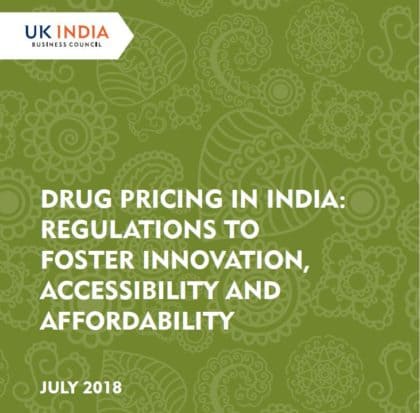Drug Pricing in India: Regulations to Foster Innovation, Accessibility and Affordability

India’s health sector is estimated to be worth US$160 billion annually, and private firms play a crucial role in delivering services. The pharmaceutical and medical device segments together make up more than one-fifth of revenues. Though India has made substantial progress on some health indicators over the last few years, several challenges remain. One is the government’s need to ensure drugs and medical devices are affordable to patients.
Policy regulations such as National Pharmaceutical Pricing Policy, National List of Essential Medicines, and Drug Price Control Orders achieve this by capping the price of drugs and medical devices. On-the-ground evidence and secondary research suggest drug affordability doesn’t always translate to availability. Excessive price regulations often distort market competition. Because of declining revenues, drug companies may exit the market. This has a bearing on availability in the short-term. With fewer resources available, companies may also refrain from expanding to rural areas or investing in newer formulations even where there is large epidemiological evidence suggesting demand. This has a longer-term impact on the health of citizens. Several developed as well as developing economies use a combination of methods to achieve inclusive healthcare.
Incentive systems for pharmaceutical and medical device manufacturing companies play a role. The methods include having an annual prescription budget; setting a maximum reimbursement level for patients; determining the market price for patented drugs based on prices of similar drugs in other countries; and centralised drug procurement in bulk. In the UK, the legislation secures a reasonable price for branded and licensed prescription drugs for the National Health Service, at a level that allows pharmaceutical producer firms to achieve a fair return on their investment in research and development.
It is important for India to follow the lead of many established healthcare markets in striking an optimum trade-off between public need and business sense. This will make quality healthcare accessible to India’s present and future generations.





